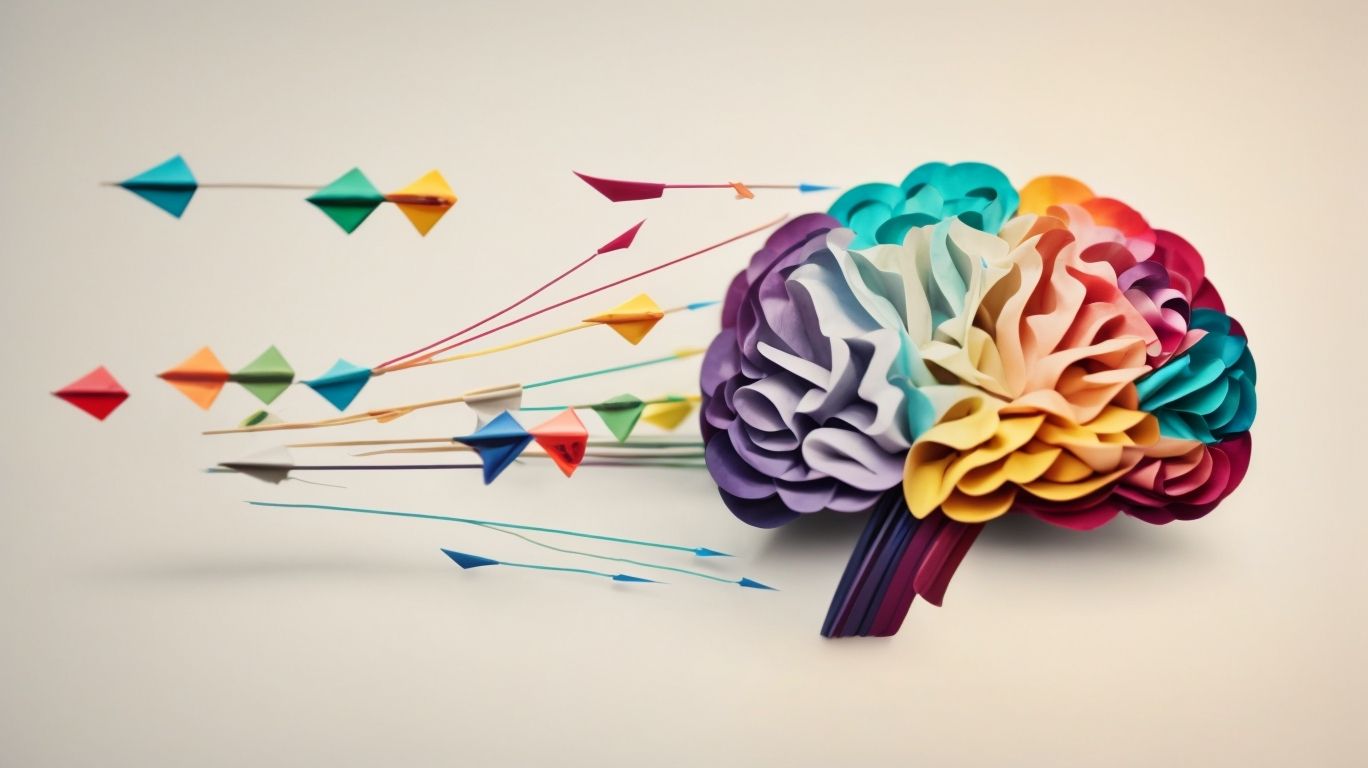Attention is a fundamental aspect of our cognitive functioning that plays a crucial role in our daily lives. In psychology, attention is a topic of great significance as it influences our perception, memory, and overall cognitive processes.
Understanding the different types of attention, factors that affect it, and its impact on perception is essential for gaining insight into human behavior.
In this article, we will explore the significance of attention in psychology, the consequences of inattention, and various strategies to improve attention. Let’s dive in!
Contents
What Is Attention?
Attention is a fundamental cognitive process that allows the brain to selectively focus on specific stimuli while filtering out irrelevant information.
One crucial aspect of attention is selective attention, which enables individuals to concentrate on particular sensory inputs while ignoring others. This process involves a complex interplay of neural mechanisms within the brain, such as the activation of specific regions responsible for processing relevant information.
When presented with various stimuli, the brain automatically prioritizes certain inputs based on factors like novelty, relevance, and significance. This prioritization is essential for efficient cognitive functioning as it helps individuals allocate their limited cognitive resources effectively.
Why Is Attention Important in Psychology?
Attention holds significant importance in psychology as it is closely linked to cognitive control, neural processes, and understanding human behavior.
Attention is a crucial cognitive function that allows individuals to focus on specific stimuli while inhibiting distractions. It plays a vital role in decision-making, problem-solving, and overall cognitive performance. In the field of neuroscience, attention is studied using advanced imaging techniques such as functional magnetic resonance imaging (fMRI) to observe brain activity associated with directing attention. These studies have revealed how different brain regions are involved in attention, highlighting its intricate neural mechanisms and connections.
What Are the Different Types of Attention?
Attention manifests in various forms including visual attention, auditory attention, and sensory attention, each playing a distinct role in cognitive processing.
Selective attention involves focusing on a specific stimulus while ignoring others, crucial for tasks that require concentration and filtering out distractions. This form of attention is especially relevant in crowded or noisy environments where the brain needs to prioritize relevant information.
On the other hand, sustained attention refers to the ability to maintain focus over a prolonged period, essential for tasks that demand continuous vigilance and thorough processing of information.
What Factors Affect Attention?
Attention can be influenced by both external and internal factors, such as environmental stimuli and individual cognitive processes.
External stimuli play a crucial role in capturing attention, as certain features in the environment may inhibit or enhance our ability to focus. For instance, sudden loud noises can divert attention away from a task, while a visually stimulating object may attract our focal maintenance. On the other hand, internal cognitive abilities, like sustained attention and selective attention, determine how efficiently we can process information and filter out distractions.
External Factors
External factors like environmental stimuli, modulators, and eye movements play a crucial role in directing attention and influencing behavioral responses.
Environmental stimuli, such as background noise, lighting conditions, and visual clutter, can impact an individual’s ability to focus and process information efficiently. For instance, a loud environment may draw one’s attention away from a task at hand, affecting their performance and response time.
Eye movements, known as saccades and smooth pursuit, are mechanisms that guide visual attention. These movements help individuals scan their surroundings and shift focus, allowing for rapid information processing.
Internal Factors
Internal factors involving neural networks, self-monitoring mechanisms, and success monitoring contribute significantly to how attention is regulated and maintained.
Neural networks play a crucial role in processing information within the brain, helping to filter and prioritize stimuli that capture attention. These complex networks of interconnected neurons work together to detect patterns, make associations, and guide attention towards relevant stimuli. Self-monitoring mechanisms enable individuals to consciously direct their focus, adjusting attention based on task demands and personal goals. Success monitoring serves as a feedback loop, reinforcing attention towards tasks that lead to positive outcomes and reshaping strategies when faced with challenges. The intricate interplay of these internal processes shapes our attentional capabilities and influences cognitive performance.
How Does Attention Affect Perception?
Attention plays a pivotal role in shaping perception, with processes like selective attention, divided attention, and sustained attention influencing how we interpret the world around us.
Selective attention refers to the ability to focus on specific stimuli while filtering out irrelevant information, allowing individuals to direct their cognitive resources efficiently.
This mechanism determines what sensory inputs are processed at a deeper level, enhancing awareness of the chosen stimulus.
On the other hand, sustained attention involves the capacity to maintain focus on a particular task or stimulus over an extended period, enabling the in-depth processing of information.
These attentional mechanisms influence the involuntary processes that occur during perception, guiding our cognitive processing and shaping our conscious experiences.
Selective Attention
Selective attention enables individuals to focus on specific stimuli while inhibiting distractions, showcasing the ability to maintain cognitive control over their attentional focus.
This cognitive function is crucial for efficient information processing, as it allows the mind to filter out irrelevant stimuli and hone in on what is important. By directing mental resources towards specific tasks or inputs, individuals can enhance their overall performance and productivity. Research suggests that individuals with strong inhibitory control tend to be better at multitasking and problem-solving, demonstrating the practical implications of this cognitive skill in everyday life.
Divided Attention
Divided attention involves the cognitive process of multitasking, where individuals engage in multiple tasks simultaneously, often requiring the involvement of the brain’s frontal lobes for efficient task management.
When individuals engage in multitasking, the cognitive load on their mental resources increases significantly. This cognitive load refers to the amount of mental effort required to perform the tasks simultaneously. The brain’s frontal lobes play a crucial role in task prioritization during multitasking, helping individuals focus on the most critical aspects of each task.
Juggling multiple tasks can lead to increased stress levels and reduced efficiency, as the brain struggles to allocate attention effectively across different demands.
Sustained Attention
Sustained attention requires focal maintenance over time, influencing an individual’s ability to sustain focus and achieve success in prolonged cognitive tasks.
One aspect of sustained attention is its crucial role in avoiding distractions and staying committed to the task at hand. It enables individuals to filter out irrelevant information and fully concentrate on the intricacies of complex activities. Through the dedication to prolonged focus, individuals enhance their cognitive functioning and problem-solving abilities.
Sustained attention also plays a significant role in memory retention, allowing individuals to retain information more effectively during extended periods of engagement. This heightened ability to maintain focus directly correlates with task success and overall performance, making it a vital skill in various professional and personal endeavors.
What Are the Consequences of Inattention?
Inattention can lead to various consequences, affecting cognitive performance, behavior, and overall task success.
When cognitive attention wanes, tasks that require focused thinking may suffer, leading to errors and decreased productivity. Similarly, lapses in behavioral attention can result in impulsivity, irritability, or difficulty regulating emotions, impacting interpersonal interactions and decision-making. These cognitive and behavioral consequences of inattention underscore the importance of mindfulness techniques and strategies to enhance attentional control and optimize task performance.
How Can Attention Be Improved?
Improving attention can be achieved through various strategies such as mindfulness exercises, cognitive training programs, and in some cases, the use of medications.
For students aiming to enhance their attention spans, creating a conducive environment plays a pivotal role. Implementing structured routines, minimizing distractions, and optimizing study spaces can significantly aid in boosting focus and concentration. Encouraging breaks during study sessions, incorporating regular physical activity, and ensuring adequate sleep are also crucial aspects that positively impact attention levels. Engaging in cognitive training interventions tailored to specific attention deficits can yield long-term benefits in improving concentration and information processing.
Mindfulness Exercises
Mindfulness exercises offer a pathway to improve attention by enhancing the ability to maintain focus, promoting sensory awareness, and facilitating learning processes.
Engaging in mindfulness practices can have far-reaching benefits beyond just attention enhancement. By cultivating a deep connection with the present moment, individuals can strengthen their sensory attention, honing in on even the subtlest details of their surroundings. This heightened awareness not only improves the quality of experiences but also aids in sharpening the mind’s ability to learn and retain information more effectively.
Cognitive Training
Cognitive training programs aim to enhance attentional skills, promote task success, and improve the individual’s ability to monitor and regulate their attentional processes.
By engaging in cognitive training exercises, individuals can sharpen their focus, increasing their capacity to concentrate on specific tasks for longer periods. This improvement in attention can consequently lead to heightened task performance and overall productivity.
Through consistent practice of cognitive training techniques, individuals can enhance their attentional monitoring abilities, enabling them to better recognize distractions and refocus their attention accordingly, ultimately leading to improved efficiency and accuracy in completing tasks.
Medications
In certain cases, medications targeting neuromodulatory systems can be prescribed to improve attention, enhance cognitive functions, and support overall task success.
These medications work by influencing the levels of neurotransmitters in the brain that play crucial roles in regulating attention and cognitive processes.
- For instance, stimulant medications like amphetamines and methylphenidate are commonly prescribed to increase dopamine and norepinephrine levels, which can lead to improved focus, alertness, and cognitive function.
- On the other hand, medications that target the cholinergic system, such as donepezil, can enhance memory and cognitive flexibility by increasing acetylcholine levels in the brain.
Conclusion
In conclusion, attention plays a pivotal role in cognitive processes, influencing various outcomes related to information processing, behavior, and task performance.
Attention is a crucial cognitive mechanism responsible for filtering and selecting relevant information, while inhibiting distractions, demonstrating the control aspect of cognitive processing. This function is largely governed by the frontal lobes, which oversee decision-making, problem-solving, and goal-directed behavior. The ability to allocate attention effectively can significantly impact an individual’s ability to focus, learn, and adapt to changing environmental demands, ultimately influencing the success of tasks at hand. Studies have shown that attention deficits can lead to difficulties in regulating behavior, decreased cognitive flexibility, and impaired overall task performance.
Frequently Asked Questions
What is attention in psychology and why is it important?
Attention in psychology refers to the cognitive process of selectively focusing on certain information while disregarding others. It is important because it allows us to filter out irrelevant information and focus on what is most relevant, which helps us make decisions and perform tasks effectively.
How does attention impact our daily lives?
Attention plays a crucial role in our daily lives as it helps us to stay focused and engaged in activities. It allows us to prioritize tasks, make decisions, and filter out distractions. Without attention, we would struggle to complete even the simplest of tasks.
What are the different types of attention?
There are several types of attention, including selective attention, divided attention, sustained attention, and executive attention. Selective attention refers to the ability to focus on one thing while ignoring others. Divided attention is the ability to focus on multiple things at once. Sustained attention is the ability to maintain focus over a long period of time, and executive attention refers to the ability to focus on relevant information while inhibiting irrelevant information.
How does attention differ from concentration?
Attention and concentration are often used interchangeably, but they are not the same. Attention is the cognitive process of selectively focusing on certain information, while concentration is the ability to remain focused on a particular task or stimulus for an extended period of time. In other words, attention is the process, while concentration is the result.
Can attention be improved?
Yes, attention can be improved through various techniques and strategies, such as mindfulness practices, regular exercise, and minimizing distractions. These methods can help to increase our ability to focus and maintain attention.
What happens when attention is impaired?
Impaired attention can lead to difficulties in learning, decision-making, and completing tasks. It can also result in symptoms of attention deficit disorders, such as difficulty focusing, forgetfulness, and impulsivity. Seeking professional help and implementing strategies can help to manage and improve attention impairments.



